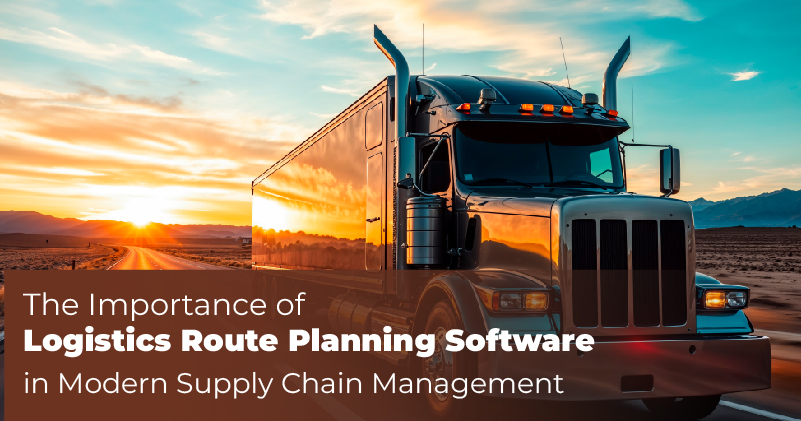
In an era where logistics efficiency dictates market leadership, enterprises leveraging advanced Logistics Route Planning Software gain a significant operational advantage. Consider a competitor seamlessly executing over 100 daily deliveries—optimizing routes, minimizing fuel expenditures, and achieving near-perfect on-time delivery rates. Conversely, businesses relying on outdated manual planning endure inefficiencies, route redundancies, and customer dissatisfaction. The underlying distinction? The strategic integration of AI-driven route optimization technology.
The logistics sector is an unforgiving landscape where inefficiencies translate directly into financial losses and reputational damage. Empirical studies indicate that organizations employing route planning software can realize a 30% reduction in fuel costs and enhance their on-time delivery performance by 20%. Failure to adopt such technological advancements relegates businesses to operational stagnation and competitive irrelevance.
The Science of Logistics Route Optimization
At its core, Logistics Route Planning Software functions as an intelligent orchestration engine, synthesizing real-time data streams to formulate optimal delivery routes. Unlike static, manually configured routing systems, AI-powered route optimization adapts dynamically to live variables, ensuring operational fluidity and cost efficiency.
Critical Variables in Advanced Route Optimization:
- Traffic Flow Analytics – Real-time congestion mitigation to prevent delays.
- Dynamic Order Prioritization – Hierarchical dispatching for high-value and time-sensitive deliveries.
- Precision Time-Window Adherence – ETA recalculations ensuring customer fulfillment expectations.
- Fuel Consumption Efficiency Modeling – Data-driven route streamlining to minimize operating expenses.
- Last-Mile Logistics Optimization – Tactical adjustments enhancing final-mile delivery precision.
The cumulative effect of these functionalities is a substantial increase in operational throughput, cost containment, and service-level optimization, yielding up to a 40% improvement in overall logistics efficiency.
The Economic and Operational Imperatives of Route Optimization
-
Fuel Expenditure Rationalization
Fuel costs constitute a significant proportion of total logistics expenditures, often ranging between 30-40%. Inefficient route planning exacerbates fuel consumption through unnecessary mileage, idling, and route deviations. AI-enhanced route optimization algorithms systematically eliminate redundant paths, achieving up to 30% cost reductions in fuel expenditure.
-
Precision Logistics and Enhanced Customer Experience
Modern consumers demand precision logistics, with real-time tracking and adherence to stringent delivery windows. Data suggests that 85% of consumers disengage from businesses following suboptimal delivery experiences. AI-driven predictive analytics, automated dispatch coordination, and proactive exception management collectively bolster on-time performance, mitigating delivery failures.
-
Scalable, Data-Driven Logistics Management
Expanding order volumes and increasing supply chain complexity render manual route planning untenable. Growth-oriented enterprises necessitate scalable, automated logistics solutions to mitigate inefficiencies and sustain service reliability. AI-driven logistics software enables real-time high-volume dispatch orchestration, leading to 25% fewer missed deliveries and 20% higher customer retention rates.
The Strategic Necessity of Route Planning Software
Industry analysis underscores the criticality of logistics software adoption:
- 61% of logistics enterprises cite inadequate route optimization as a primary operational constraint.
- Last-mile delivery expenditures account for 53% of total supply chain costs.
- AI-driven dispatch automation enhances delivery velocity by 35%, yielding a quantifiable competitive advantage.
TMS-Digital: Pioneering the Future of Logistics Technology
Enterprises that fail to integrate next-generation logistics route planning remain susceptible to inefficiencies and margin erosion. TMS-Digital provides a comprehensive suite of logistics solutions, engineered for scalability and precision:
- TMS-Dispatch – AI-powered route scheduling, carrier allocation, and load optimization.
- TMS-Trucker – Real-time fleet tracking, adaptive route recalibration, and performance analytics.
- IFTA Reporting – Automated tax compliance solutions, mitigating administrative burdens.
The Competitive Imperative
In the evolving logistics paradigm, technological agility is synonymous with competitive advantage. Enterprises leveraging TMS-Digital’s advanced logistics solutions achieve superior operational efficiency, cost containment, and customer satisfaction.
Optimize your logistics framework today! Engage with TMS-Digital to harness AI-driven route planning and transform your supply chain into a high-performance, data-optimized operation.










